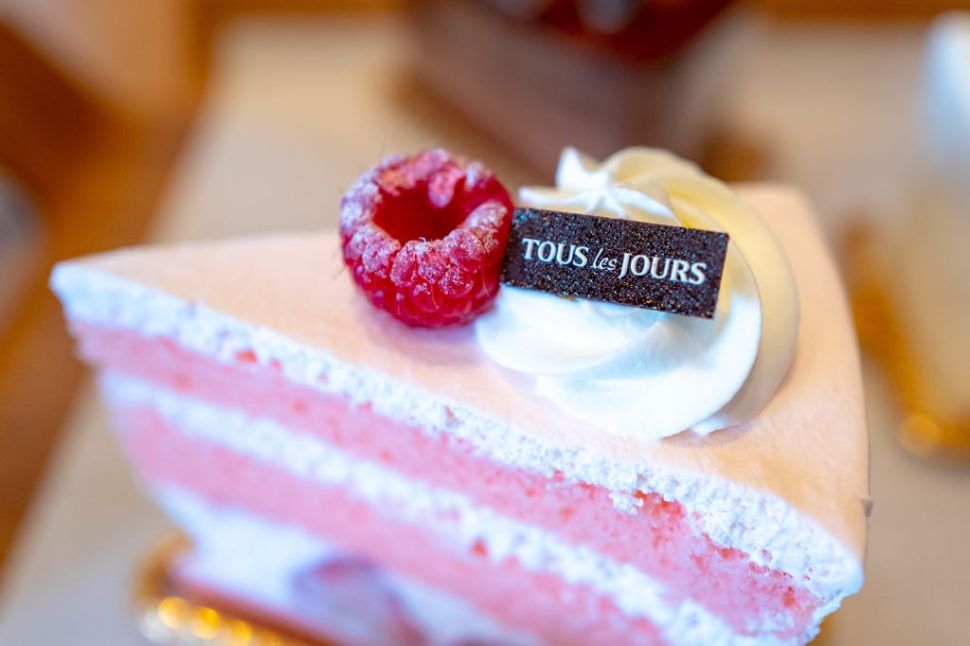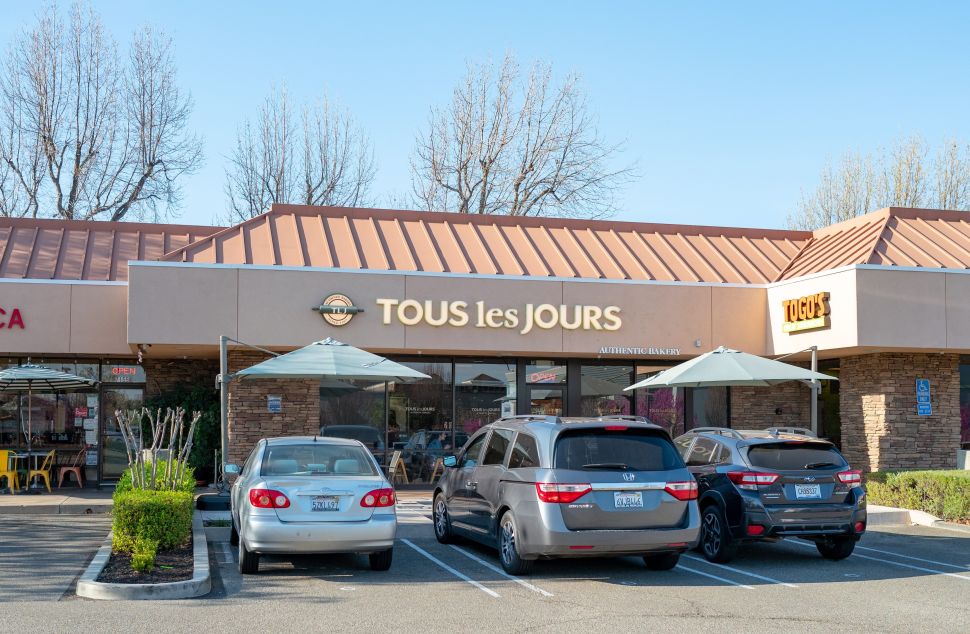
If you live in New York or Los Angeles and love to grab a coffee and snack on the go, you are probably no stranger to TOUS les JOURS, the café-style bakery known for its wide selection of freshly baked pastries, delicate cakes and beautiful fruit tarts. TOUS les JOURS (and its equally French-sounding rival, Paris Baguette) is actually from South Korea. The bakery café chain pioneers a unique concept known as French-Asian pastry and is enjoying a growing presence in the U.S.
French-Asian pastry is a distinct genre confined neither to France nor to Asia; it’s also more than “just a fusion of flavors,” said Tony Hunsoo Ahn, the CEO of TOUS les JOURS’s international business. The store sells classic French bakery items, traditional Korean-style pastries and everything in between. “Our menu features unique flavors and just the right amount of sweetness, which sets us apart in the American market,” Ahn told Observer.
Founded in Korea in 1997, TOUS les JOURS opened its first U.S. store in 2004 (Paris Baguette arrived a year later). Today, it operates more than 100 stores across the U.S. Encouraged by consistent profitability and a growing demand in recent years, the company has an ambitious goal to grow that number ten-fold by 2030. In September 2023, TOUS les JOURS announced plans to build its first U.S. production facility in Gainesville, Georgia to support that vision. The company also recently opened its first store in Canada, further expanding its reach in North America.
In December 2023, Observer interviewed Ahn about the TOUS les JOURS’s long journey of bringing Korea’s café culture to the U.S. and how it has moulded and reshaped America’s taste in coffee and pastry.
The following Q&A has been edited for length and clarity.
Observer: I have visited Korea a few times as a tourist. I got the impression that coffee and pastry have a special place in the Korean lifestyle in comparison with other Asian cultures. Where do you think it came from?
Tony Hunsoo Ahn: Korea is probably one of the quickest markets to keep up with the latest trends in the world. As Korea experienced economic growth at an exponential speed over the past few decades, its food and beverage scene quickly adapted to Western culture.
As a result of economic growth, more jobs have become available, therefore increasing the size of the population commuting for work. Coffee and pastries have become a staple in modern Korean culture because of their simplicity and functionality. For many, it has become a daily routine to take their favorite cup of joe, likely an Americano, from their nearby café on their way to work or during lunch breaks. Visiting a bakery or café has become an essential part of a typical Korean person’s daily life, regardless of age or gender.


What makes a bakery or a café great in Korea?
It’s the experience—bakeries and cafés have a huge presence in Korea, and there’s still room for growth. Most stores are well decorated to create an inviting vibe and have plenty of seating, making them suitable for social gatherings or work meetings.
How did TOUS les JOURS get its name?
“Tous les jours” means “every day” in French. With our unique French-Asian menu and mission to provide freshly breads made with quality ingredients every day, we couldn’t have thought of a better fitting name.
How would you define French-Asian bakery? How is it different from, say, traditional French bakery?
French-Asian bakery is a unique concept where a wide variety of menu items are presented with authentic ethnic flavors, such as red bean and kimchi, in a cafeteria-style store. We offer an array of both French pastries and Asian-style cakes rather than just a fusion of flavors. You will find traditional Korean-flavored products, such as a red bean donut, as well as traditional Western bakery items with nontraditional flavors, such as croissants filled with strawberries and cream.
The cafeteria-style layout, where each customer grabs a tong and tray to pick out their own items, is something you will definitely find in a French-Asian bakery. This has helped us create a product-centric environment, which emphasizes our menu variety. This design also enhances the in-store experience for customers since it provides the customers control to choose their own products without waiting to be served at the counter.


Korean pastry in general strikes me as distinct in both flavor and aesthetics. What sets you apart from competitors in a Western market like the U.S.?
One thing that distinguishes us from competitors is our emphasis on providing a wide variety of menu items all day and for every occasion. You can find breakfast pastry, birthday cakes and good coffee all in one place.
Our menu features unique flavors and just the right amount of sweetness, which sets us apart in the American market. Many customers have said the authenticity of flavors is our key strength. We have seen that classic items with our signature flavors, such as milk cream and matcha, perform exceptionally well. One of our top-selling products is Cloud Cream Cake, which incorporates a sweet vanilla sponge with milk-based cream and fresh berries.
Who are the customers of TOUS les JOURS in the U.S.? Are they primarily Asian or other ethnic groups as well?
In the first few years of our operation in the U.S., our strategy was to steadily expand our presence across areas where consumers had prior experience with the brand. For instance, Koreatown Los Angeles. However, we quickly learned that there was a demand for Korean-inspired bakery goods outside of these markets, too. So we opened our first Manhattan location in 2012. That was an area outside of our comfort zone, and it’s been a continuous growth to where we are today. Currently, non-Asian customers make up more than half of our customer base.
As far as age groups go, our target and actual customer pool has been those in their late 20’s to 40’s who enjoy premium products and value quality. Interestingly enough, we’ve seen more Gen Z customers frequenting our stores in recent years.
TOUS les JOURS has been doing business in the U.S. for nearly 20 years. Has your brand proposition and customer base changed over time? How has inflation in the past 18 months affected your business and strategies, if at all?
With high inflation, a main shift we’ve seen in consumer behavior is seeking quality over quantity, especially among the younger generation.
While consumers are willing to spend a bit more for premium options, the overall value must make sense in order for business to survive. Especially in the current state of economy, there has been a huge shift in value where what seemed to be pricey in the past has become the norm. This shift is an advantage for TLJ, actually, because in the past a lot of consumers tended to classify us as a premium brand compared to their local bakery options, and now we appear more accessible, and we are consistently seeing an increase in the number of average tickets.
